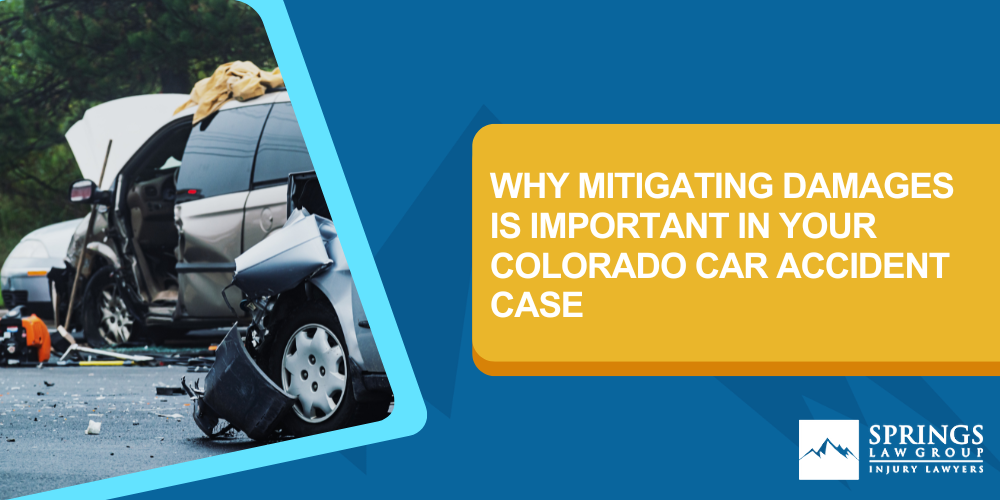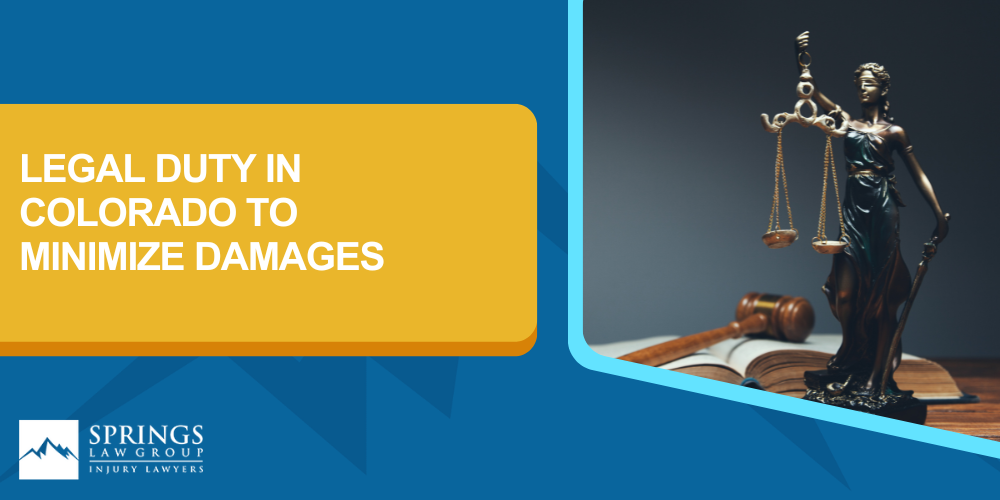Why Mitigating Damages Is Important in Your Colorado Car Accident Case

Being a victim of a Colorado Springs car accident can be overwhelming. Recovering from injuries, dealing with the loss of income, and repairing damaged property are just a few of the things that need to be resolved. It is important to know, however, that a car accident victim who alleges harm due to another’s negligence has a legal duty to mitigate his or her damages. He or she must take reasonable steps to reduce the amount of harm suffered due to the crash. Failure to do so can negatively affect your personal injury claim.
Legal Duty in Colorado to Minimize Damages

While it is true that an injured party may use his or her discretion when treating injuries suffered, he or she cannot sit idly by and let damages increase in an effort to seek more monetary compensation in a personal injury claim. Instead, an injured victim is expected to take efforts to minimize losses – at least minimal and not extraordinary efforts. Colorado courts consider the following factors when determining whether or not a plaintiff’s efforts to mitigate damages were sufficiently reasonable:
- The plaintiff’s knowledge or awareness of the need to mitigate damages;
- The expense of mitigating damages as compared to the plaintiff’s financial position;
- The opportunities available to the plaintiff to reduce damages to him or her; and
- The amount of time that passed between the initial injury and the plaintiff’s efforts to mitigate.
If the defendant – or the party against whom the personal injury lawsuit was filed – can establish that the plaintiff did not fulfill his or her duty to mitigate damages, any monetary award for the plaintiff will be reduced by the amount damages that could have been mitigated but were not. Examples of failing to mitigate may include not seeking medical attention right away or at all, not following doctor’s recommendations, or stopping treatment against medical advice.
“Thin Skull” Principle

There is a general legal theory that a defendant must take the plaintiff as he or she is found. Simply put, this means that if the plaintiff had a pre-existing condition that aggravated his or her damages, the defendant would likely still be required to pay these additional damages – if found liable. That being said, a plaintiff may not simply allege he or she had a psychological disorder that prevented him or her from mitigating their damages. Instead, the plaintiff must prove the nature of the condition that caused aggravated damages as a result of the accident.
Colorado Springs Car Accident Attorneys

If you or someone you know suffered injuries in a Colorado Springs car accident due to the negligence or recklessness of another, know that you have rights and obligations under applicable state law. If you need information on how to properly mitigate your damages so that your personal injury claim is not negatively affected, contact the knowledgeable Colorado Car Accident attorneys at the Springs Law Group today. We can explain the law in a way you can understand and will fight to obtain a maximum recovery for you.
